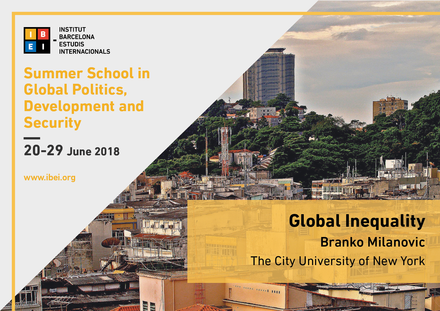Global Inequality
6 hour course
Branko Milanovic (The City University of New York)
June 20, 22 and 25 (11.30am – 1.30pm)
The objective of this short course is to give an overview of global inequality (inequality between citizens of the world, and between countries of the world), to explain the methodology that lies behind such calculations, and to draw ethical and political implications from these findings.
The course is divided into three parts. The first part looks at the definition of inequality, its measurement, and the sources of data where we get information on inequality. The second part is the core part of the course. It defines the three concepts of (international and global) inequality and reviews how they have evolved over the last fifty years, and focuses especially on “the greatest reshuffle of individual incomes since the Industrial Revolution that was driven by remarkable growth of China and India. It addresses the reasons for the divergence in mean incomes between countries and reviews the evidence on global (inter-personal) inequality. The third part assesses political and ethical implications of the empirical findings. Can we say that inequalities are too high? Is there causality between globalization and global inequality? Are rich countries (and people) obligated to help poor countries (and people)? Should migration be free, limited or non-existent?
- Session 1. Methodology of inequality research
- Session 2. Measurement of global inequality: data and results
- Session 3. Political implications of global inequality

